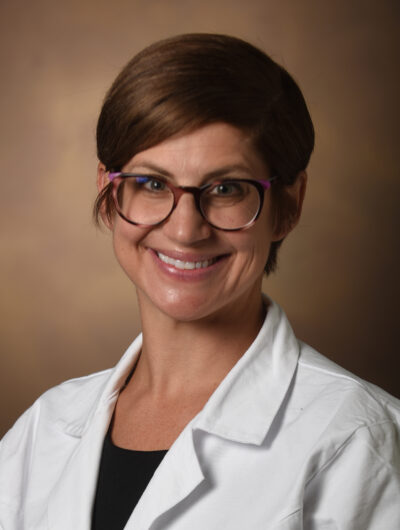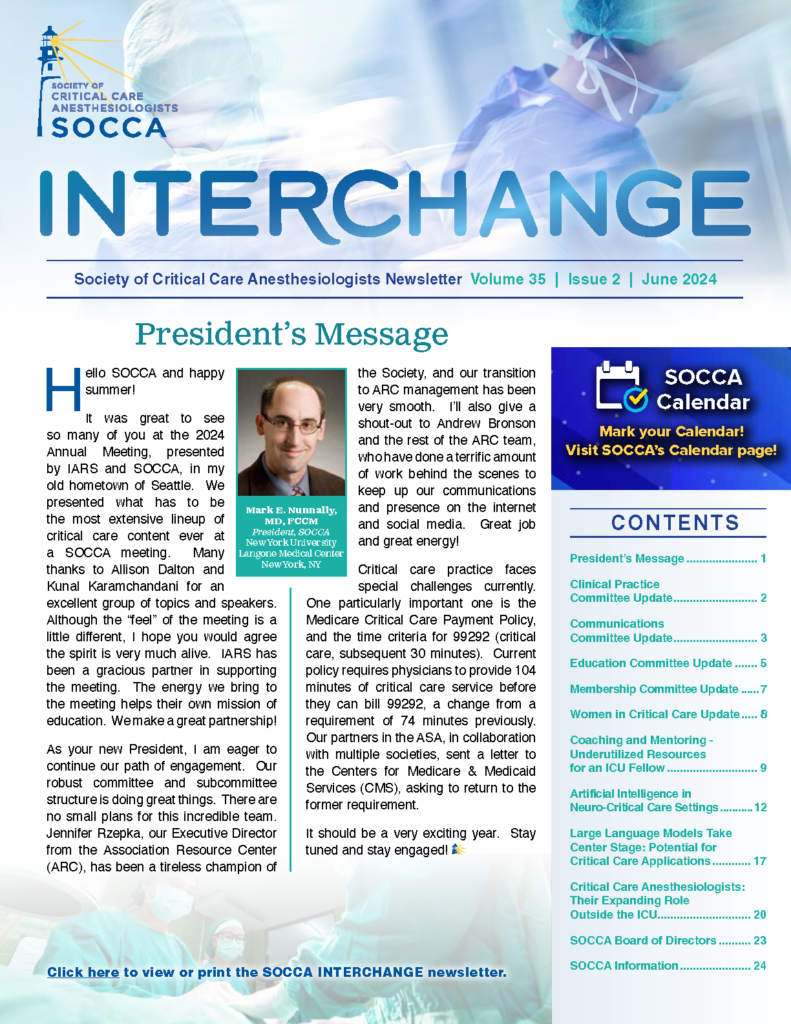COVID-19 Letters
Editor’s Note: Nicole King is an anesthesiologist and critical care physician at the University of Cincinnati. She is currently obtaining her Executive Masters in Clinical Quality, Patient Safety and Leadership at Georgetown University. She answered a call for volunteers in New York and staffed a repurposed operating room intensive care unit for a month. While there, she chronicled her experience via e-mail. Excerpts from those e-mails are reproduced below. Only minor edits have been made where necessary for readability and to guard privacy.
Letter 1
Well I guess we will start this one with the honest truth. I have been here for 3 days and am in an ICU of 78 beds. I have not heard of one successful extubation. Sure, is this biased information...you bet...but it’s also astronomically different from every ICU I have ever been in. And I have been in quite a few. The disease process is so profoundly odd...it’s so hard to explain. But the one thing that is the same on every single patient is that this is an absolutely brutal disease that defies all logic and unabashedly kills...albeit slowly.
So, what am I learning here? Part of the team that I described in my first email is the most essential part. This is the family support person. This is actually not ethics or the chaplains, but rather anesthesiologists who are over a certain age, immunocompromised, or pregnant. They Zoom or Facetime into rounds, and then they personally have conversations with the family members each day. They stay on for whole week so as to build a relationship with the families.
This is essential not only for the families but for the teams, as we simply cannot take this time like we usually do during our day.
Also today a resident called a family on speaker phone, because they wanted to talk to their family member but didn't want to see him. She held the phone for 20 minutes while they wailed, sobbed and talked to the patient. While 3 other patients were in the room and the patient was deeply sedated. The patient likely didn't hear them, but my resident did. She said it was the hardest part of today.
This is why you need time off. I am doing 7 days in a row right now because another attending had a death in their family (from COVID), but I can attest to you that if and when this hits you have to take care of your people. They have to work in shifts. They cannot maintain this level of intensity paired with the need for emotional detachment for too many days in a row.
Letter 2
Imagine you are a cath lab nurse, and you have been asked to take care of 3 critically ill patients with a disease we know nothing about. Can you imagine? I can't, but I'm living it. I am surrounded by heroes. Nurses who are practicing so far outside their comfort zone it’s insane. Trying to learn to chart, titrating drips, troubleshooting dialysis until perfusion can get there, silencing alarms (they never stop...ever...my ears are bleeding...I hear them in my sleep), trying to clean the patients, turn the patients, call out for the doctor because the patient is fighting the vent or tanking their blood pressure.
CRNAs being scheduled to cover an OR of patients as a provider (something they have never done...they have never rounded on a patient like we have) and then being asked to also be the nurse. Trying to do both until someone else shows up take over the "provider role" or now 2 CRNAs in one OR so that they can be both nurse and provider. Holding hands, cleaning faces, suctioning, turning, cleaning up all of the messes, redressing lines, titrating drips, charting nursing stuff while ordering stuff like a provider. Can you imagine?
Now imagine you are an attending and you are used to things just "happening" and expecting that the patient is cleaned, appropriately positioned and the charting is completely caught up. Now take all of that and throw it out the window.
Now imagine you are a critical care fellow and your job is to do oral care, suction ETTs, and try to manage the ventilators of 78 patients trying to die. That job that "nurses and RTs do" is now your job. One never realized how time consuming and essential this job is. One never realized how important it is. Good critical care is 10% about good decision making and 90% about Rockstar nursing care. I always knew my CC nurses could make or break me. They taught me how to be a doctor. But I never realized that without them, the mortality of a patient likely increases. By how much...I don't know. But it’s true.
So train people now to be ICU nurses...all of you...all of us. We have to. If we don't, the patients will suffer.
Letter 3
This one is going to be a bit more for those who are exposed to ECMO on a regular basis, though I think it is a useful foundation for how we think of most things we take advantage of in an ICU setting.
Things change a lot when you move from a large "community hospital" as I would consider the Navy MTFs to larger academic institutions. One can volley back and forth on the pros and cons of both, but the fact remains that the one thing that stuck out to me as an ICU fellow, was that ECMO was always the answer in an academic institution.
ALWAYS...and even if was the least reasonable option, it was still on the table. It had to be...because the surgeons lived to cannulate, and you lived to manage that circuit. You could do anything with that circuit. Oxygenate blood, bypass a failing RV and LV, sometimes both, sometimes with multiple venous drainage limbs. I mean who could pass up a good VAV ECMO. It’s LIFE...or at least it is for right now...we can do anything right?
Except when it is a pandemic. All of a sudden that option and/or that choice is far more exclusive. All of those "recommended" indications and contraindications become REAL and hard. Because for all the times you claimed that the surgeons would cannulate a frog if they needed to, you didn't realize you slowly started thinking it was a valid option and a normal part of ICU care...for just about anybody.
After all that time lamenting that ECMO was always the answer, I realize how privileged I had become.... because it was always available. And now, it is not.
Look around at what you have plenty of and what you don't, and think about how you will ration it. This will be easier for those who have been deployed and/or in the military and know this process well. This will be more difficult for those of you who have lived in academia for a long period of time. It may never come to this in your institutions, but the possibility is there...whether now or in the fall or in the future.
Stay safe out there...and remember ECMO is now NOT always the answer.
Letter 4
Today I didn't work. Today my work is done, and yet it’s the first day I cried. Not sure why I was susceptible to it today of all days. Why now? Maybe it’s the shield being lowered as I start thinking about going home and seeing my babies. Maybe it’s anger...at the world. At some of my own circumstance. Or maybe it’s the gravity of a situation I can't control, and I was shell shocked when one of my more stable patients died today.
Also yesterday, on my last day, I extubated my final patient and then spent hours trying to get him the hell out of that room. His two roommates were DNR but full care and actively dying, and there was so much activity, his heart rate kept raising higher and higher. He is so thankful, and he thought he was going to die, but he needs to go out of this room. I called bed management to try to force the system. I felt like if he stayed he would fail. He would get too anxious. I would have to sedate him, and I would fail him. After saving him, I would fail him. I couldn't live with that. He finally went to the floor last night. For that I am grateful.
In "my core,” of which I covered 16 of the past 25 days, I took care of 17 different patients. 4 of 17 (24%) were extubated, 3 of 17 (13%) died, and 10 of 17 (60%) were still intubated or trached in the ICU.
And that is how I leave New York. Those stats are heart wrenching. That is miserable and devastating. And as I walked home last night, an ambulance pulled up and the EMTs jumped out pumping a man's chest rushing into the ER...and I thought...COVID.And today after crying and collecting myself, I went and enjoyed the glory of central park along with 15,000 other New Yorkers. I watched them all wear masks and try to socially distance but just try to be a tiny bit normal. And I felt human again. Because I have to. Because we have to...because we have to live before we die. We have to be smart about it...but we have to live.




































